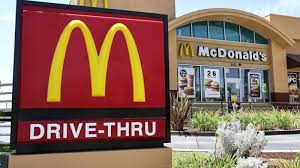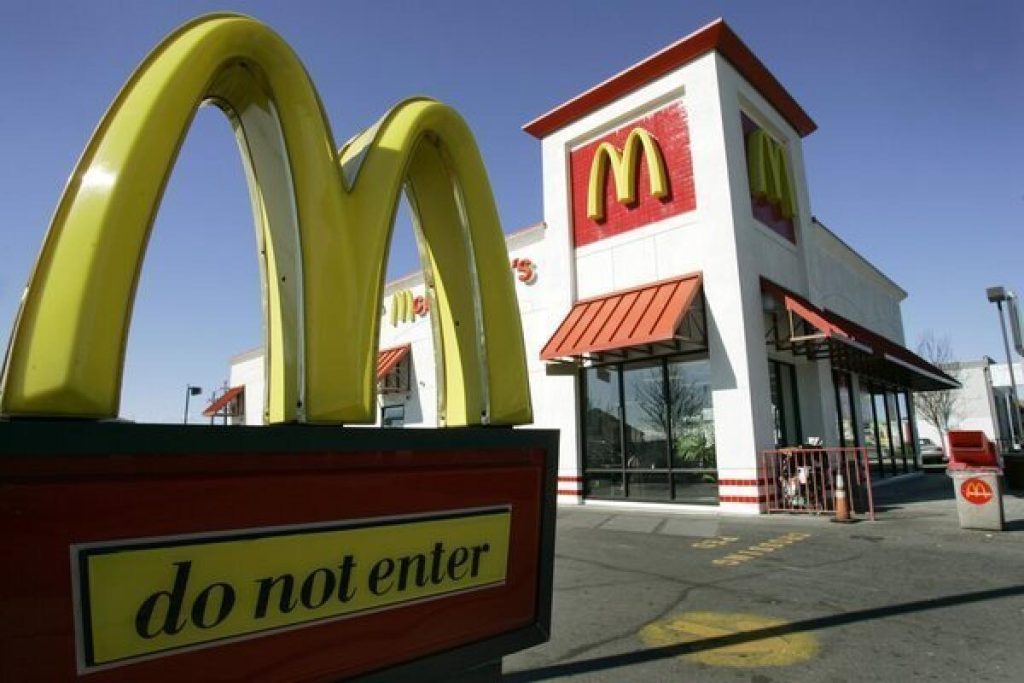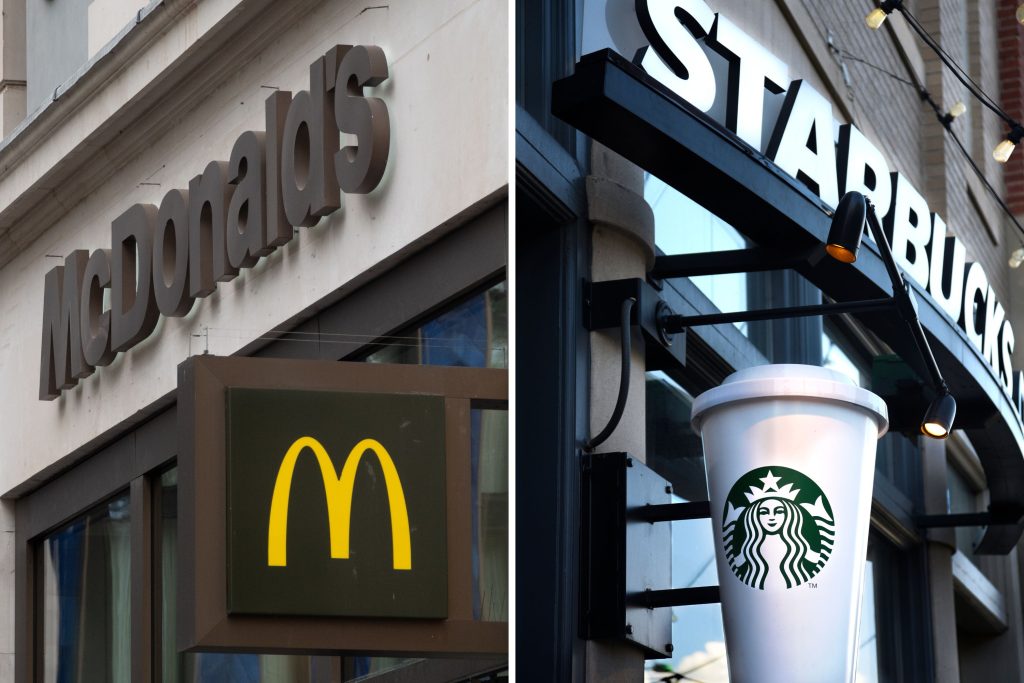How Much Money Has McDonalds Lost?
Are You Curious To Know How Much Money Has McDonalds Lost? Recent reports reveal that the fast-food giant experienced a 12% drop in net income, bringing it down to $2 billion for the second quarter. This decline marks a troubling shift for a company that has long been viewed as a leader in the fast-food industry.
In addition to falling net income, global comparable sales decreased by 1%, signalling a shift in consumer behaviour as inflation-weary customers opt for cheaper dining options or forgo eating out altogether. Despite efforts to roll out new meal deals and menu items, McDonald’s faces a complex battle to regain its footing in an increasingly competitive market.
Table of Contents
Decline in Net Income and Sales Performance

| Aspect | Details |
| Quarter | Q2 2024 |
| Net Income | $2 billion (down 12%) |
| Global Comparable Sales | Decreased by 1% |
| First Drop Duration | First decline in nearly four years |
| Contributing Factors | Inflation and consumer preference for cheaper options |
| CEO Statement | Chris Kempczinski acknowledged shrinking value leadership gap |
| Initiatives | Rolling out meal deals and new menu items |
| Sales at Established Stores | Fell by 1% |
| Economic Context | Economic pressures affecting consumer behavior |
Inflation’s Impact on Consumer Behavior
| Key Aspect | Details |
| Impact of Inflation | Inflation has significantly shifted consumer behavior, particularly in dining choices. |
| Consumer Behavior | Many consumers are opting for budget-friendly meals due to rising prices. |
| Customer Value Seeking | McDonald’s customers are increasingly seeking better value in their dining experiences. |
| Price Increases | While necessary, price increases have led some diners to reconsider their spending habits. |
| Meal Deals | McDonald’s is implementing meal deals to attract cost-conscious customers back. |
| Strategic Response | The introduction of a $5 meal deal is a strategic response to the trend of consumers seeking value. |
| Global Impact | Inflation’s effects are not limited to local markets; they have a global impact. |
| Regional Economic Challenges | Different regions face unique economic challenges affecting consumer behavior: |
| – Middle East: Political perceptions influence consumer choices. | |
| – France: Economic conditions also play a significant role. | |
| – China: Economic sentiment pushes consumers towards cheaper alternatives. | |
| Adaptation Strategies | McDonald’s must continuously adapt to varying regional conditions to stay competitive. |
| Menu Innovation | The chain focuses on menu innovation and targeted promotions to address inflation’s broad impact. |
Strategies to Combat Declining Sales
| Strategy | Details |
| Targeted Meal Deals | Introducing deals like the $5 meal deal to attract budget-conscious customers. |
| Menu Innovation | Testing new items, such as the Big Arch double burger, in various international markets. |
| Marketing Campaigns | Reinforcing value proposition through broader messaging to highlight affordability and quality. |
| Regional Adaptation | Tailoring promotions to specific markets to address unique consumer needs and preferences. |
| Overall Goal | Aiming to regain value leadership and boost overall sales through these combined efforts. |
U.S. Market Performance
| Aspect | Details |
| Same-Store Sales Change | Fell nearly 1% |
| Consumer Behavior | Sign of consumer hesitation; fewer customers visited, but those who did spent more |
| Influencing Factors | Price increases for paper, food, and labor |
| Promotional Offer | $5 meal deal exceeded expectations; aimed at lower-income consumers |
| Franchisee Support | Nearly 93% of U.S. franchisees agreed to extend the $5 meal deal through August |
| Target Audience | Budget-conscious diners |
| Marketing Focus | Highlighting value-oriented options to stabilize and boost U.S. market performance amidst economic pressures |
Global Market Challenges

McDonald’s faces significant global market challenges beyond just inflation. Consumer boycotts in France and the Middle East due to perceived political stances have hit store traffic hard. China presents another hurdle: weak economic sentiment pushes customers toward cheaper competitors. Different regions have unique economic and political issues that impact consumer behaviour.
McDonald’s must navigate these varied landscapes carefully. Adapting meal deals and promotions to fit local markets is crucial. Additionally, enhancing marketing efforts to resonate with regional sentiments is essential. Such strategies require constant adjustments and localized approaches. Balancing global branding with regional nuances remains a complex task. McDonald’s continues to test new products and offers tailored to these diverse market conditions. However, immediate results may be challenging to achieve in this volatile environment.
$5 Meal Deal Initiative
| Key Aspect | Details |
| Promotion Launch Date | June 25 |
| Target Audience | Budget-conscious diners, particularly lower-income consumers |
| Participation Rate | Nearly 93% of U.S. franchisees |
| Promotion Duration | Extended through August |
| Initial Impact | Increased store traffic |
| Franchisee Support | Strong support for the initiative |
| Sales Strategy | Aimed at boosting overall sales |
| Success Status | Exceeded initial expectations, vital for recovery strategy |
| Marketing Focus | Emphasizing value and affordability |
| Future Plans | Expand similar deals to other regions, tailored to local markets |
| Commitment | Offering attractive, budget-friendly options |
Meal Deals in Other Countries

McDonald’s is leveraging meal deals to attract customers in various countries. In Germany, these promotions have gained popularity quickly. Offering budget-friendly options helps attract a cost-conscious demographic. Similarly, the United Kingdom has seen success with tailored meal deals. This approach capitalizes on local tastes while maintaining affordability. Countries like Spain and Italy are also embracing these offers. Different meal combinations cater to regional preferences and economic conditions.
McDonald’s aims to boost overall sales globally by transitioning to new menu deals. However, each market presents unique challenges and opportunities. Marketing campaigns in these regions focus on value and quality. By understanding local consumer behaviour, McDonald’s tailors its strategies effectively. Continuous innovation and adaptation are key to sustaining this momentum. Meal deals in various countries reflect McDonald’s commitment to global recovery.
New Menu Items and Testing
McDonald’s is actively testing new menu items to rejuvenate its offerings. One standout is the Big Arch double burger, currently being trialled in three international markets. This new item aims to attract value-seeking customers with its affordability. Additionally, McDonald’s is exploring regional flavours to cater to local preferences better. This localized approach allows the chain to appeal more directly to diverse consumer tastes.
Testing also extends to new side options and beverages, providing more variety for customers. The company leverages feedback from these trials to fine-tune its menu. Innovation continues beyond food; McDonald’s is also revamping its packaging to enhance the dining experience. By continuously experimenting with new products, McDonald’s hopes to stay ahead in the competitive fast-food landscape. These trials are crucial for gauging customer interest and adjusting strategies accordingly.
Revenue and Profit Expectations
| Aspect | Details |
| Analysts‘ Forecast (EPS) | $3.07 |
| Actual EPS (Excluding Items) | $2.97 |
| Revenue | $6.5 billion |
| Wall Street Expectation | $6.6 billion |
| Challenges | Ongoing global inflation and changing consumer behaviors |
| Future Initiatives | Investment in new menu items and meal deals |
| Investor Confidence | Shares rose by 4% in morning trading |
| Growth Dependence | Navigating regional market complexities and inflationary pressures |
Investor Response to McDonald’s Strategies

| Aspect | Details |
| Current Challenges | McDonald’s is navigating various challenges in the market. |
| Focus Areas | The company is concentrating on meal deals and new menu items. |
| Investor Sentiment | Early signs indicate cautious optimism among investors. |
| Promising Initiative | The $5 meal deal is showing promise and has contributed to a 4% increase in share prices. |
| Adaptation to Economic Conditions | The chain is adapting to regional economic conditions through tailored promotions and localized menu innovations. |
| Analyst Perspective | Analysts believe that these initiatives could help stabilize sales in the long term. |
| Need for Sustained Effort | Recovery will require ongoing effort and commitment to value and affordability. |
| New Product Testing | The new Big Arch double burger test is generating interest among investors. |
| Importance of Adaptive Strategies | Adaptive strategies are viewed as crucial for overcoming challenges and improving investor confidence. |
| Future Considerations | Investor sentiment will depend on the effectiveness of McDonald’s current measures moving forward. |
Frequently Asked Questions
Why did McDonald’s net income fall in the second quarter of 2024?
McDonald’s net income fell due to inflationary pressures and declining consumer traffic. Increased paper, food, and labour costs contributed to the 12% drop in net income.
What strategies is McDonald’s using to attract budget-conscious customers?
McDonald’s has introduced targeted meal deals, such as the $5 meal deal, and is testing new menu items like the Big Arch double burger. These efforts aim to offer better value and attract cost-conscious diners back to its stores.
How has inflation impacted McDonald’s sales globally?
Inflation has led consumers to opt for cheaper dining options or to skip eating out altogether, resulting in a 1% decrease in global comparable sales. Different regions also face unique economic challenges, further impacting consumer behaviour.
What has been the investor response to McDonald’s new strategies?
Investors have shown cautious optimism, reflected in a 4% rise in share prices. They are closely watching how effective McDonald’s meal deals and new menu items will be in stabilizing sales and boosting revenue.
Conclusion
McDonald’s is in a tough spot, but they’re not giving up. The company is pushing forward with strategic meal deals and new menu items to attract budget-conscious customers. Though inflation has made things challenging, McDonald’s remains committed to offering value. The $5 meal deal has already shown promise, helping to lure back lower-income diners.
However, success will depend on how well they adapt to regional economic conditions. Their efforts to tailor promotions to specific markets show a keen understanding of diverse consumer needs. The company is on the right track, with investor confidence rising. Yet, the road ahead is filled with challenges that require ongoing innovation and adaptation. McDonald’s focus on value and quality could be the key to overcoming these hurdles.







